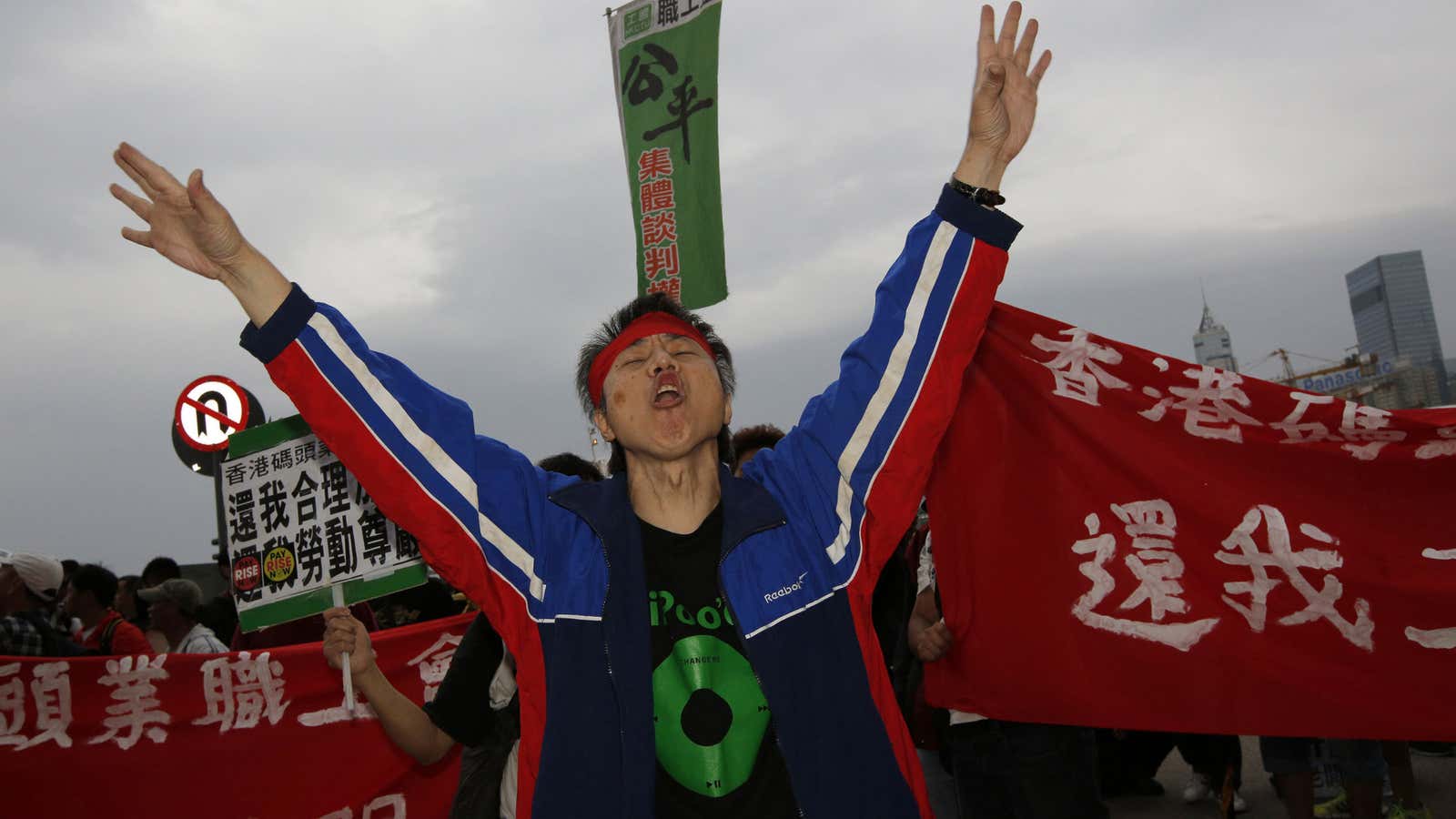A 40-day strike at Hongkong International Terminals that slowed but didn’t halt traffic at the world’s third-largest port has ended after dock workers agreed to a compromise 9.8% pay increase—along with the newly guaranteed right to take a bathroom break.
An estimated 530 dockworkers managed by contractors who operate the port—Everbest Port Services, Pui Kee Stevedore Company, Lem Wing Transportation and Comcheung Human Resource—walked off the job on March 28, initially calling for a 20% pay rise. According to the Union of Hong Kong Dockers, striking dockworkers were making HKD$55.00 per hour (USD$7.09) before the agreement, less than the HKD$60.70 they made in 1995.
Much of the delay had to do with getting a deal set down in writing, and approved by all of the contractors involved. Everbest in particular refused direct talks with strikers and declined to ink a deal with workers, but ultimately had to give in to these demands.
Some experts have speculated that the strike is indicative of the rising power of labor in Hong Kong. The strikers appeared to have broad public support, calling into question the dominance of the city’s business elite. In particular, the Asia Sentinel argues that the dispute may have have rebranded Li Ka-Shing, the tycoon who controls Hong Kong International Terminals, and not in a good way:
A populace that once regarded Li Ka-shing as a rags-to-riches hero now more often see him as one of a tiny group of mega-businesses that operate the oligopolies controlling the territory’s property, utilities, public transport and supermarkets. Not only is Li Hong Kong’s richest man but his chief lieutenant Canning Fok, the man behind some of the personal attacks on unionist Lee [Chun-ing, the strikers’ advocate], is Hong Kong’s highest paid salary (and more) earner.
The strike didn’t upset marine traffic too seriously. Many shippers decided to divert vessels to the nearby port of Shenzhen, one of China’s fastest-growing ports.




